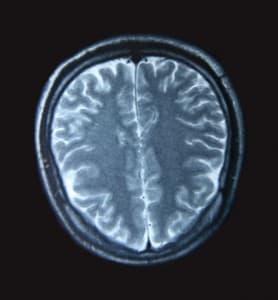What Causes a Concussion and How is it Treated?
recent news
In keeping with Brain Injury Awareness Month, our physicians are here to give you the scoop on a common traumatic brain injury: concussion. The dialogue on concussions in sports has received a lot of attention, especially when it comes to return-to-play standards.
Nearly 200,000 Americans experience sports-related concussions each year. Although football might be the first sport that comes to mind when you think of the term concussion, concussions actually occur in a variety of sports and affect young athletes and professionals.

What is a concussion?
“Concussions are what we call mild traumatic brain injuries. While they typically subside in a week or more, research suggests they can cause issues in the long term,” says Dr. James C. Chesnutt, one of Rebound’s concussion specialists.
Concussions may occur when one receives a blow to the head or to the body, when one falls, or when one receives any injury that shakes the brain within the skull.
“They can be incredibly serious, especially if an athlete returns to play before their symptoms subside or before they’ve received a proper evaluation,” says Dr. Chestnutt.
How can you identify a concussion?
Concussions are common in sports and recreational activities because they typically occur after a direct blow to the head or body.
While concussion symptoms are not always obvious, here are some of the most common:
- Drowsiness
- Dizziness
- Headache
- Loss of consciousness
- Memory loss
- Irritability and confusion
- Speech difficulties
- Nausea and vomiting
- Seizures or weak/numb arms and legs
How are Concussions Treated?
Rebound providers offer concussion evaluations and also provide advice via telephone. Rebound’s physiatrists can also help manage athletes with any neurocognitive deficits or prolonged post-concussive syndrome.
“If you’ve experienced the type of impact that could result in a concussion, or experience symptoms, you should not hesitate to reach out to one of our physicians,” says Dr. Chesnutt.
As a part of an evaluation, your physician may perform a series of examinations that will test your symptoms associated with vision, balance, memory/cognitive abilities, hearing and motor responses. Imaging tests like MRI scans and CT scans are also common, because they provided images of the affected area of the skull and brain.
Returning to Activity After a Concussion
“Rebound providers do not recommend same-day return-to-play, especially for younger athletes,” says Dr. Chesnutt. “We tend to see repeat concussions in athletes who return to their sport before they’ve completely recovered from the initial concussion.”
Returning to physical activity too quickly is not the only concern- someone who has suffered from a concussion should also refrain from mental overexertion. Your recovery should involve stages of progression.
- Rest until you no longer experience physical or mental symptoms.
- Light aerobic exercise
- Sport-specific exercise
- Non-contact training drills
- Full contact training after your doctor has given you clearance
- Return to play
Rebound providers advise patients suffering from concussion to also avoid alcohol use during the recovery period. Alcohol may cause complications for those who have experienced brain injury.
If you suspect you have a concussion or similar traumatic brain injury and you’re ready to discuss the available treatment options with one of our specialty-trained concussion experts, James C. Chesnutt, M.D. or John P. Kafrouni, M.D., visit us in Vancouver at our Vancouver, location; in Portland at our Rose Quarter location; or at our Lake Oswego location. You can schedule an appointment online or call us at 1-800-REBOUND.
Consensus Statement on Concussion in Sport
Sport Concussion Assessment Tool 2
American Academy of Orthopaedic Surgeons – Sports Concussion